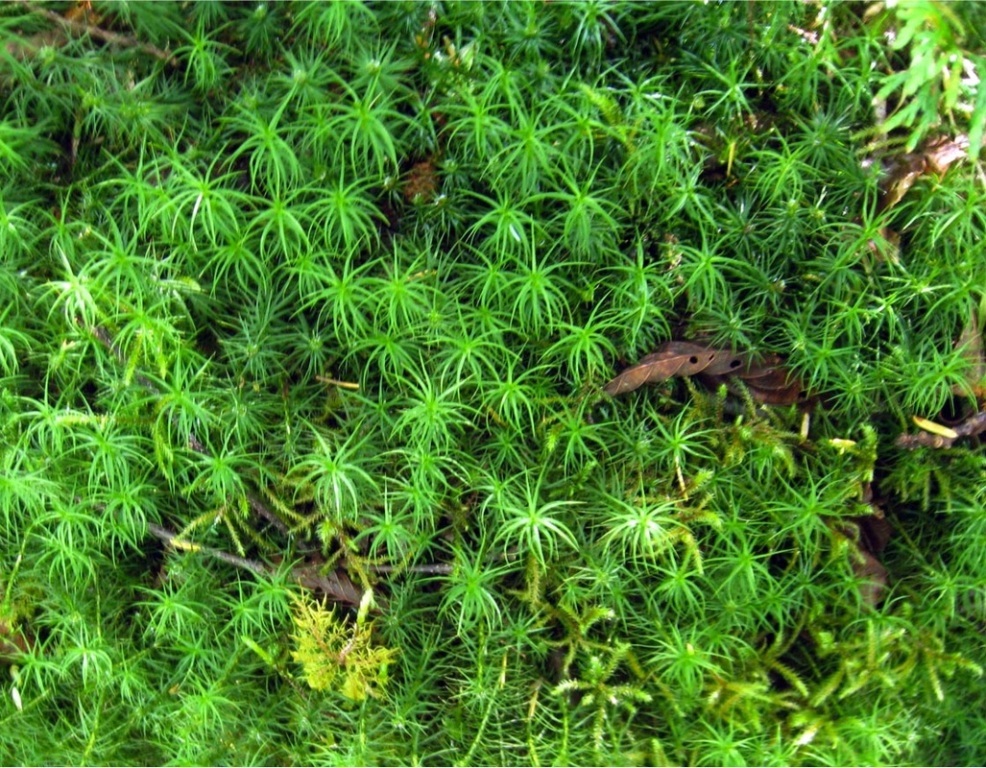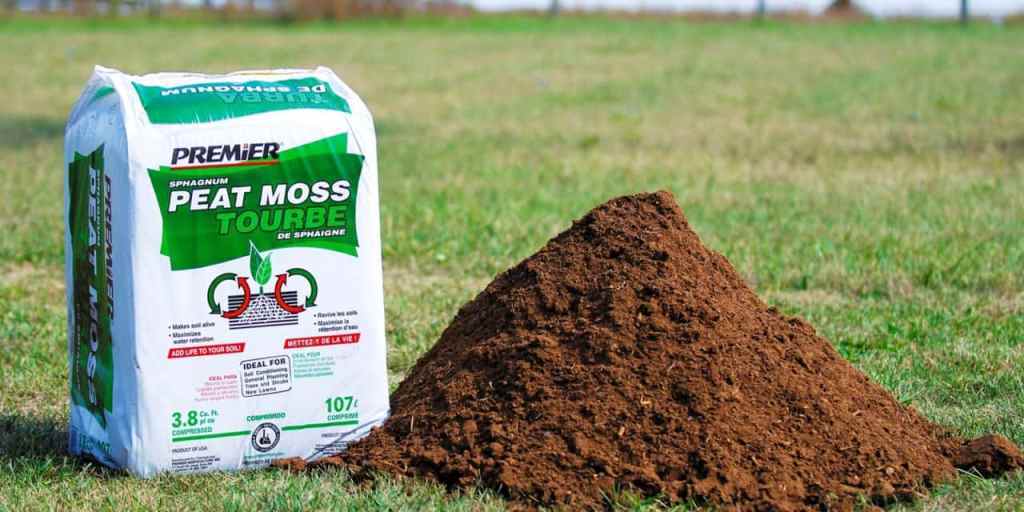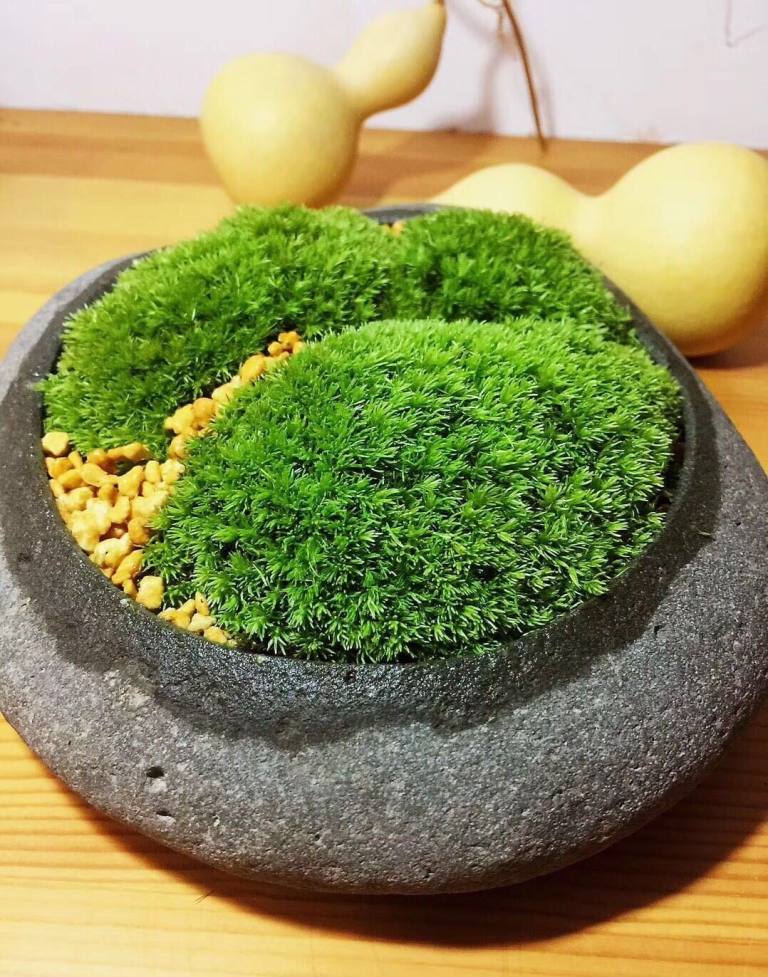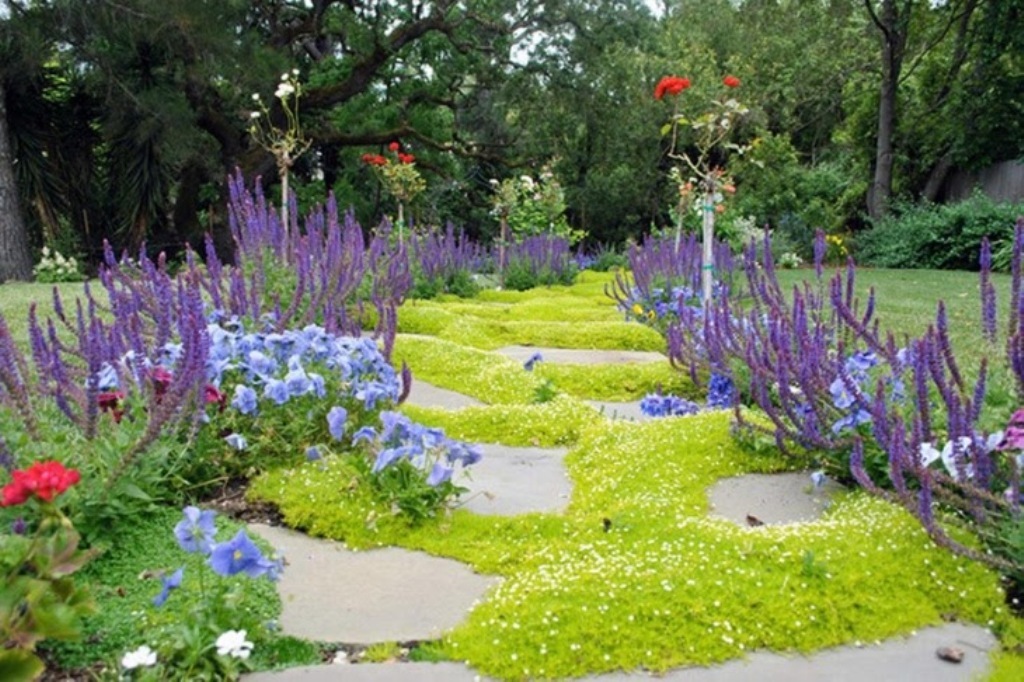There’s been a change in the way we view moss. Once considered to be on the same level as weeds to rid your garden of as quickly as possible, moss is now a welcome sight, often grown and sought out purposely for its own space in the modern garden. In some cases, conditions cause moss to grow naturally and more plentifully than grass–and it should be allowed to continue.
Found in Japanese gardens for centuries, moss is now gaining popularity elsewhere in the world as a water saving plant that is highly sustainable, good for erosion control, and considered low maintenance. Some are even enjoying moss in place of grass, as it requires only a tiny percentage of the amount of water needed to sustain a lawn.
To keep most types of moss healthy, give them a gentle mist regularly and water thoroughly two times per week. Filtered water works better than tap water whenever possible due to high levels of chlorine and other chemicals in the tap water which can damage your moss and cause discoloration.
There are many different types of moss, each with its own unique look and purpose. Let’s take a look at what’s available while you select which types might work best in your garden:

Hair Cap Moss
Said to be one of the most common plants worldwide and the most frequently used in landscaping, Hair Cap Moss resembles a bright green stretch of tiny fir trees. It can grow up to 16 inches tall, was once used to make brushes and weave into rugs, made into a hair rinse, has been used in medicinal teas to dissolve gall bladder and kidney stones.
Hair Cap makes a lovely type of ground covering because it stays green all winter, is not poisonous, and can grow practically anywhere. Get your Hair Cap Moss here.
Mood Moss
Often used in terrariums, fairy gardens, rock gardens, or potted plants, Mood Moss is grown in clumps on rocks or in soil and can change color with its moisture level. When moist, it’s thick, full, lush, and vibrantly green. If there’s too much sun, it can become brittle and even burn. Try to find it a perfect spot without too much moisture or too much heat/sun.
When kept in ideal conditions, this moss will add a gorgeous texture and color to your other planters or moss garden. Get your Mood Moss here.
Peat Moss

There are over 300 species of peat moss, all known as very absorbent and widely used in horticulture. Most of the peat moss in the USA comes from rural Canadian bogs, which is linked to a controversial form of harvesting (read more here). Ideal as a lawn replacement, peat moss is frequently found in hanging plants, terrace gardening, and raised beds as well. Great for areas of limited space. Excellent water retention. Get your Peat Moss here.
Hypnum Moss
Hypnum moss, also known as Sheet Moss, is said to exist everywhere on the planet with the exception of Antarctica. It has about twenty names (including carpet moss, brocade moss, feather moss, and many more), and can thrive in a variety of environments.
It’s also preferred by many gardeners for its easy transplantability and adaptability to growth on rocks, soil, other plants, and logs. Like several other types of moss, hypnum replaces a grass lawn very well. Its color can range from bright green to yellowish green. Get your Hypnum Moss here.
Cushion Moss
Also known as white moss or leucobryum, cushion moss is named for the way it grows into shapes that look vaguely similar to pin cushions. It can be very pretty in moss gardens as it appears a whitish, silver color when it’s dry, while it’s a deep, velvety green when wet.
Cushion moss successfully grows throughout the world, a perfect ground cover in home gardens. It’s also widely used along pathways, planted around trees, and decoratively placed in terrariums. Make sure there’s enough moisture for this moss and try to plant it in moderate-to-heavy shade if possible so it can keep its lush green condition. Get your Cushion Moss here.

Tennessee Wholesale Nursery has a vast array of mosses to choose from including:
- Topiary Moss
- Reindeer Moss
- Hypnum Moss
- Hedwigia Moss
- Sheet Moss
- Carpet Moss
- Cushion Moss
- Irish Moss
- Mood Moss
- Terrarium Moss
- Spagnum Moss
- Polytrichum Moss
- Peat Moss
- Rock Cap Moss
- Thuidium Fern Moss
- Tree Apron Moss
- Hair Cap Moss
- Garden Moss Collection
- Grab Bag Moss
- Climacium Tree Moss
- Ground Fern Moss
- Walking Fern
- Wire Sedge
Got questions? Call Tennessee Wholesale Nursery here: 888-704-0060 to get suggestions and ask any questions you may have about your moss garden. Start your catalog browsing and order your favorite mosses by calling 931-692-4252 or visiting online here.






